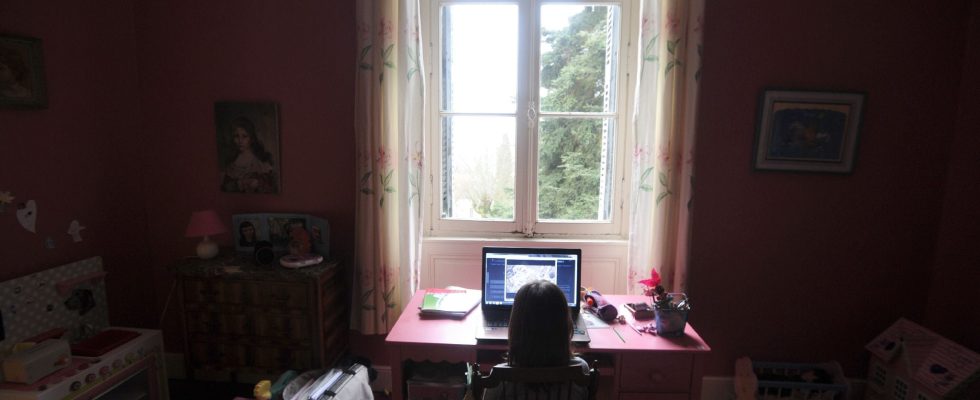A society increasingly aware of gender inequalities, but sexism that is on the rise. The paradox, which may be surprising at first glance, is raised by the report of the High Council for Equality (HCE), published Monday January 22.
In the sights of the independent commission, the family, school and digital technology, all three of which are “incubators of sexism”. The first as the “origin” of sexism, the second as a “crystallizer”, and the last as an “amplifier”.
“Sexism begins at home, continues at school and explodes online,” concludes the HCE. And to detail: “Parents, without even realizing it, reproduce the most traditional gender patterns. The education system perpetuates inequalities, despite diversity. And the Internet, like any communication tool, is both the best and worst things […] by conveying in its most viewed content, stereotypes and sexist and sexual violence.”
Vocations, subject of gender inequalities
The illustrations are numerous. Two thirds of the women interviewed believe they did not receive the same education as their brothers. An opinion contrary to that of parents, 41% of them considering that they have educated their children of the opposite sex in the same way. And this even though 62% of women say they have received dolls, compared to only 3% of men.
Vocations are also subject to inequalities. 74% of women say they have never been pushed to study in scientific or technical fields. The same goes for professions related to protection or security, not considered by 69% of women, compared to 54% of men. A gap of 15 points which “will determine the possibilities for the development and the respective choices of boys and girls”.
Religious environments more conducive to inequalities
“Femininity and masculinity are roles assigned very early within the family,” deciphers the HCE. 36% of French people think in particular that inequalities are due to a natural difference, “which leads to a specialization of roles […] : among boys, we value strength, competition, contempt for weakness, even the feminine. Among girls, we value listening, empathy, gentleness and docility.”
A vision more widespread in practicing family environments, all religions combined. 21%, compared to 10% for the general population, consider, for example, that men “must sometimes be violent”. Behaviors also legitimized by the pornography industry – 9 out of 10 pornographic contents presenting unsimulated acts of physical, sexual or verbal violence against women.
The pornographic industry, an incubator of violent fantasies
And the figures speak for themselves: 64% of men aged 25 to 34 say that pornography “makes you want to reproduce sexual gestures” and that it should not be “demonized”. In addition, an Ifop study reveals that only 33% of young men aged 18 to 24 recognize that pornographic content has a negative influence on their sexuality.
“Early introduction to porn seems to have real effects on the representations that men have of women in the sexual relationships that they can maintain,” warns the High Council for Equality. It is therefore no surprise that men exposed to pornographic content at a young age would respond more positively to the question: “When you are in a relationship, it is normal to have sex to please your partner even if you do not I don’t want to.”
Sexism that continues to gain ground
At the same time, the High Council for Equality observes a strengthening of stereotypes among men. 70% of them think, for example, that they must financially provide for their household’s lifestyle. And almost a third of them believe that a man must know how to fight. Even more caricatured, 13% of men believe that they “must have many partners” to be respected.
“Regardless of the gender concerned, gender clichés are massively disseminated in society and are proving even more entrenched this year,” underlines the report. The idea that it is “harder for men to cry than for women” gains 3 points among men this year. Plus 4 points also for the a priori that contraception is a women’s affair, as estimated by 26% of the men questioned.
First National Day Against Sexism, January 25
“The report clearly shows the gap between this awareness and the maintenance of stereotypes which continue to shape mentalities and behaviors,” writes the HCE, which, to stifle the resurgence of these sexist preconceptions, formulates its recommendations and defines a “plan emergency” which is divided into three axes: education, regulation, sanction.
And to launch a new awareness campaign on the occasion of the first National Day to Combat Sexism, on January 25. With a slogan: “Let’s make sexism history!”
